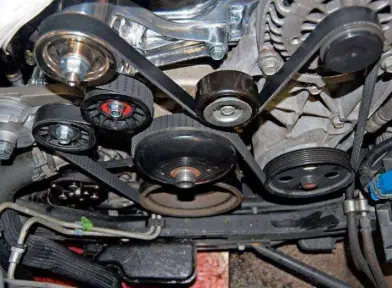
The squeaking noise emanating from under the hood is not solely attributed to the serpentine belt, even though it is usually the prime suspect. At times, other components may fail and are reluctantly replaced due to cost considerations.
Squeaking Noise From Serpentine Belt - It's Now Always The Reason
When the squeaking noise begins under the hood, the serpentine belt is typically the first suspect. Most often, it makes its presence known with the familiar and attention-grabbing sounds during the morning cold start and in the initial few meters of driving. Since the serpentine belt seldom receives attention outside the manufacturer's recommended maintenance intervals, this can lead to costly problems: a snapped serpentine belt can affect auxiliary components and, in some cases, pose a danger to the occupants.
The symptoms of a worn serpentine belt do not always manifest as the well-known squeaking noise, which can also originate from the idler pulleys. Replacing the serpentine belt and pulleys is generally recommended after reaching 100,000 miles or during the next timing belt or chain replacement.

To eliminate or at least mitigate the squeaking, the belt is often tightened further. This can provide a temporary solution but only works if the belt tensioner is manually adjustable. In the long run, however, the serpentine belt should be replaced. While the serpentine belt replacement for a simple inline engine is relatively affordable, it becomes significantly more expensive for boxer or V-type engines.
Other sources of noise may include:
- Worn starter freewheel;
- Power steering pump;
- Fan viscous coupling;
- Air conditioning compressor magnetic clutch;
See Also:
Same articles

Understanding Vehicle Inspection and Verification Services: Why They Matter for Every Driver
GuidesVehicle inspection and verification services are an essential but often overlooked part of keeping roads safe and cars legally compliant. Most people only think about inspections when it’s...
KLIFEX Brand Overview: High-Quality Automotive Repair Kits for Affordable Repairs
GuidesThe automotive aftermarket has long needed solutions that combine reliability, durability, and affordability. Many car enthusiasts and services are looking for a way...
Fast, Reliable Vehicle Emissions & Inspection Services Made Simple
GuidesFast, reliable emissions and inspection services are essential for keeping vehicles road-ready, compliant with environmental regulations, and safe for daily driving. If you’re looking for quick...

